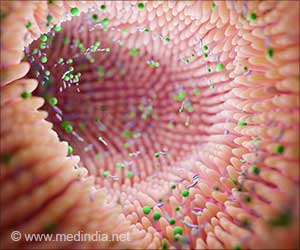The dramatic change in diet can throw off the balance of the gut microbiome and put you at risk of developing multiple sclerosis (MS).

‘Healthy lifestyle or Probiotic supplement that promotes healthy intestinal bacteria shows promising results in Multiple Sclerosis treatment.’





Trillions of bacteria, fungi, and other organisms live in your digestive system. Collectively known as the gut microbiome, normally these microbes coexist peacefully, working together to support digestion, immunity, and overall health.However, if something such as a dramatic change in diet occurs, it can throw off the balance of the gut microbiome and affect your health, putting you at risk of developing certain diseases — among them is multiple sclerosis (MS).
The new study includes 148 Danish multiple sclerosis patients and just as many healthy control subjects, who gave blood and fecal samples at the start of the study and again two years later.
Using genetic analyses, the researchers could identify which bacteria were in the intestines, and the effects of these bacteria in multiple sclerosis patients.
How do Gut Bacteria, Inflammation, and Multiple Sclerosis Intertwine?
This disruption in the gut bacteria can set off a chain reaction. The microbiome can affect the activity of the white blood cells in the intestine, and these white blood cells can migrate to other parts of the body, including the brain.Advertisement
Because MS is an autoimmune disease of the central nervous system, these disruptions, which lead to an increase in pro-inflammatory bacteria in the gut, are thought to impact the condition.
Can Modifying Bacteria in the Gut Change the Course of Multiple Sclerosis?
The finding of two types of health-promoting bacteria in patients without an active disease is particularly interesting. These are two species of bacteria that reduce an over-reactive immune system, and they were found to a greater extent in patients whose disease was inactive.Advertisement
However, these aren’t definitive studies — more research consisting of larger studies is needed to help clarify the role diet plays in modifying the gut microbiome and managing Multiple Sclerosis.
Source-Eurekalert















